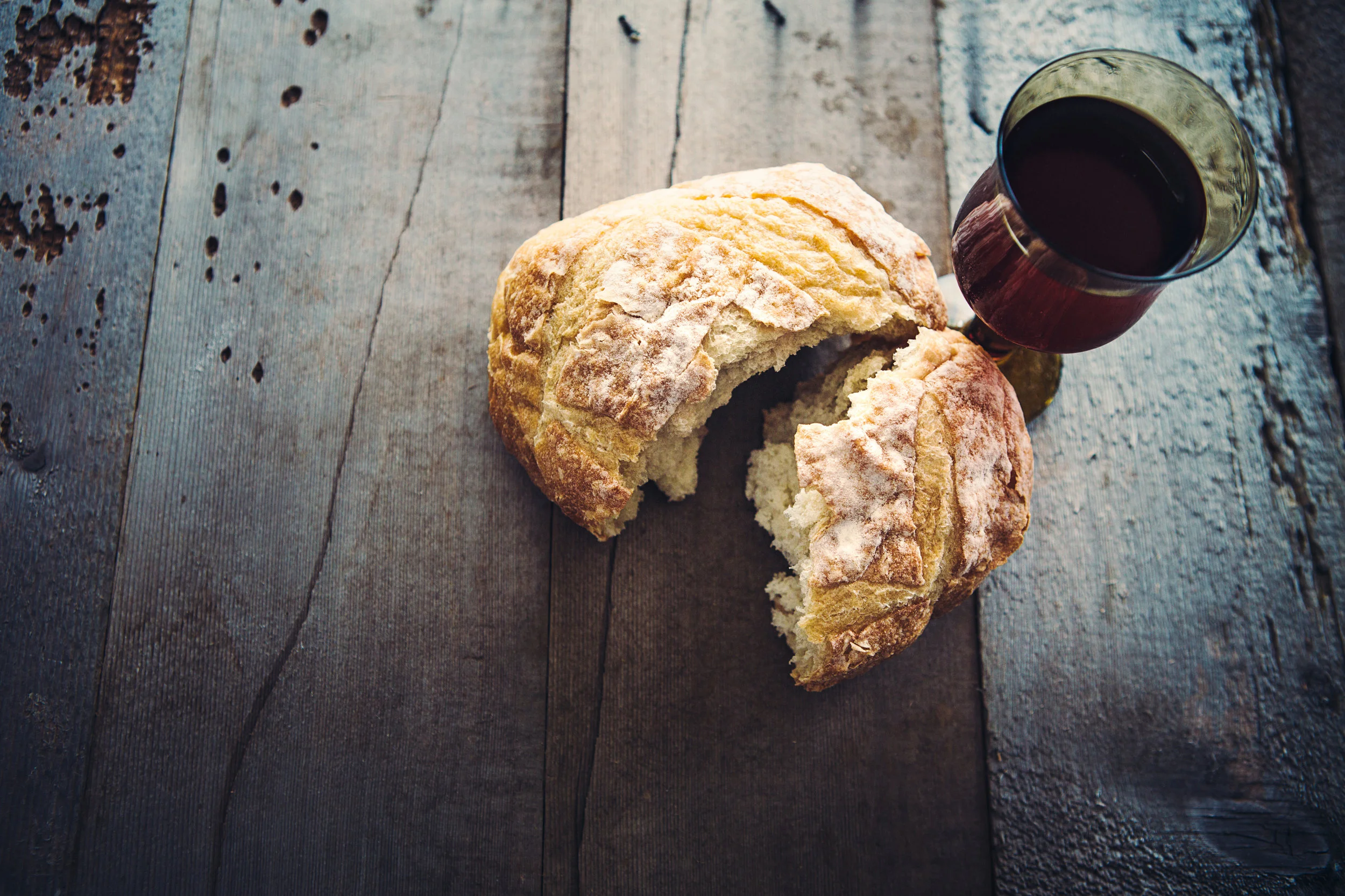Pentecost 12B2018
John 6:35, 41-51
by Pastor Sarah Stadler
I was baptized at three weeks old.
I went to Sunday school every Sunday,
to church at every opportunity.
Every Christmas program, every children's church choir, every children's sermon, every Vacation Bible School and Day Camp, I was there.
In third grade, I received my first non-picture Bible.
In fifth grade, I took Holy Communion for the first time.
In seventh grade, I began helping lead Vacation Bible School.
In ninth grade, I confirmed my faith.
In tenth grade, I taught Sunday school.
In college, I served on outreach teams and prayer groups, participated in Bible studies and daily worship, worked at Bible camps and served on congregational council.
Upon graduation, I joined Lutheran Volunteer Corps, then went to seminary and became a pastor.
I am thoroughly churched. I believe in God. I have come to Jesus again and again. I am still hungry. I am still thirsty.
So, what does Jesus mean when he says to the disciples: I am the bread of life. Whoever comes to me will never be hungry, and whoever believes in me will never be thirsty?
I hate to disagree with Jesus, but I feel like, because I believe in God and because I continually come to Jesus and because I am thoroughly churched, because of these things, I am still hungry. I am still thirsty. I am searching, pushing, seeking, questioning, challenging myself. I am searching for wisdom, pushing for justice, seeking greater compassion, questioning the norms of our culture and widely-held assumptions about the Bible and Christianity, challenging myself to love more deeply still.
So, what hunger and thirst has Jesus sated in me, in us who come seeking him? What does it mean to have our hunger and thirst sated at all?
In trying to answer my own questions, I picture in my mind friends who are deeply grounded, spiritual people, people who have it all together, people who neither hunger nor thirst, people who don't get overwhelmed by tasks or challenges, people who speak thoughtfully and appropriately at all times. And then, I realize I know no one like this. And my mind jumps to people like Mother Teresa, champion of the impoverished, dying children of Calcutta, India, winner of the Nobel Peace Prize, surely someone not plagued by hunger or thirst. But for the whole time she was serving in India, as she inspired millions of people through her acts of love and care, Mother Teresa herself felt a great void of God's presence. As my mind ticks through the truly great people of faith, I remember with each person how they hungered and thirsted, how they struggled with questions and problems, how they grappled with very human issues like finances and moral quandries, how some of them were even killed because of their work. What does it mean to neither hunger nor thirst?
And finally, my mind lands on a member of this congregation, a faithful leader, a dedicated servant, someone who spends countless hours here at Grace, someone who is here nearly every Sunday for worship. My mind lands on this person receiving Holy Communion, fed and nourished by the bread of life. This person is not perfect. This person is full of contradictions. This person stumbles and falls. This person struggles. But when this person falls, this person gets back up again. This person has forgiven me when I've made mistakes. This person has fully embraced the mission of God in this place and given themselves over to what God wants, not what they want. I suspect that this person, like me, hungers and thirsts for wisdom and justice, grace and love, but there is a groundedness, a knowledge of being loved and forgiven, a trust in God's presence at all times. When Jesus talks about satisfying our hunger and thirst, in my mind's eye, I see this person and know that God has done this in their life.
Of course, the pertinent question is: how do I get that?
Each Sunday, a bit of bread, a sip of wine, words proclaimed: The body of Christ, broken for you. The blood of Christ, shed for you. Lest Holy Communion become mundane, Jesus reminds us this morning that this is living bread, bread that does something in us, gifts of God for the people of God that bring forgiveness of sin, life, and salvation. We take into our bodies the very life of God, in a fashion we cannot completely understand or explain, but this life satiates our hunger and thirst.
Take and eat. Take and drink. This is Christ's body and blood for the life of the world.

